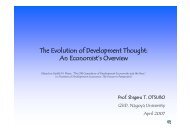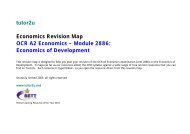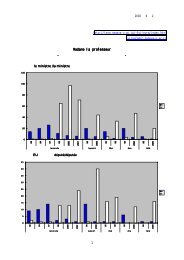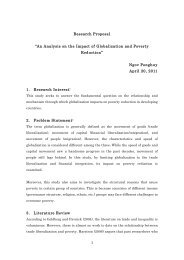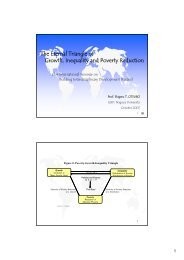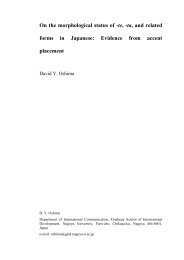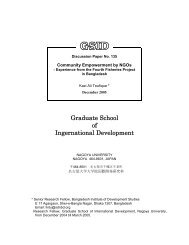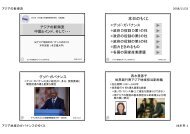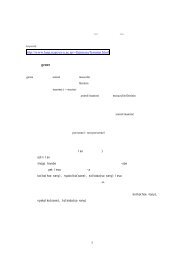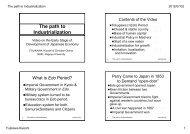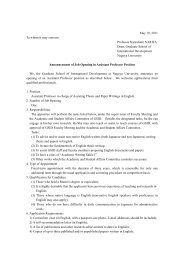Report
Report
Report
Create successful ePaper yourself
Turn your PDF publications into a flip-book with our unique Google optimized e-Paper software.
H EALTH AND RELATED SERVICES 163<br />
To formalise the movement of doctors across<br />
SAARC countries, therefore, it may be desirable to have<br />
mutual recognition agreements (MRAs) on recognition<br />
of qualifications for doctors, dentists and nurses. Such<br />
MRAs will have a positive impact in facilitating service<br />
delivery through both Modes 1 and 4. At a minimum,<br />
such MRAs should address the following aspects:<br />
• Ensure that the relevant medical, dental and nursing<br />
councils from each SAARC country recognise<br />
medical and dental qualifications provided in other<br />
SAARC countries. As a first step, such recognition<br />
may be confined to degrees awarded only by<br />
specific institutions in each of the countries, and<br />
may subsequently be reviewed and expanded to a<br />
larger list of institutions<br />
• Recognition of qualifications needs to be accompanied<br />
by streamlining the process of application<br />
for registration with the relevant councils. An aspect<br />
to be explored is whether recognition by a medical,<br />
dental or nursing council in any SAARC member<br />
can be automatically recognised by the relevant<br />
council in another SAARC member. This would<br />
mean, for instance, that a doctor qualified and registered<br />
with the medical council of India need not go<br />
to each SAARC member and complete the registration<br />
formalities in such member; but will be automatically<br />
recognised in such member by virtue of<br />
his/her membership of the medical council of India.<br />
• Such an MRA should also address standards of<br />
service delivery.<br />
Recommendation 3: Measures to Encourage Mode<br />
2 in Health Services Delivery<br />
As discussed in this chapter, there are no regulatory<br />
constraints for mode 2 delivery of services. However,<br />
factors such as lack of insurance portability limits access<br />
for a service consumer. This needs to be addressed at<br />
the level of each member state.<br />
• Ensure portability of insurance coverage and<br />
recognition of foreign medical degrees by insurance<br />
companies: This aspect needs to be addressed at<br />
the national level in each SAARC member. The<br />
agreement between the SAARC members should<br />
recognise this as a key factor for development of<br />
Mode 2 supply of service. Each member should<br />
also undertake to ensure that health insurance<br />
service providers within their territories extend<br />
the coverage for treatment in any SAARC<br />
country.<br />
• Provide expedited Medical Visas: ‘Medical visas’<br />
as a separate category is recognised under the<br />
Indian regulations pertaining to Immigration and<br />
Visas. Expedited mechanisms for consideration and<br />
grant of medical visas between all SAARC members<br />
needs to be considered.




